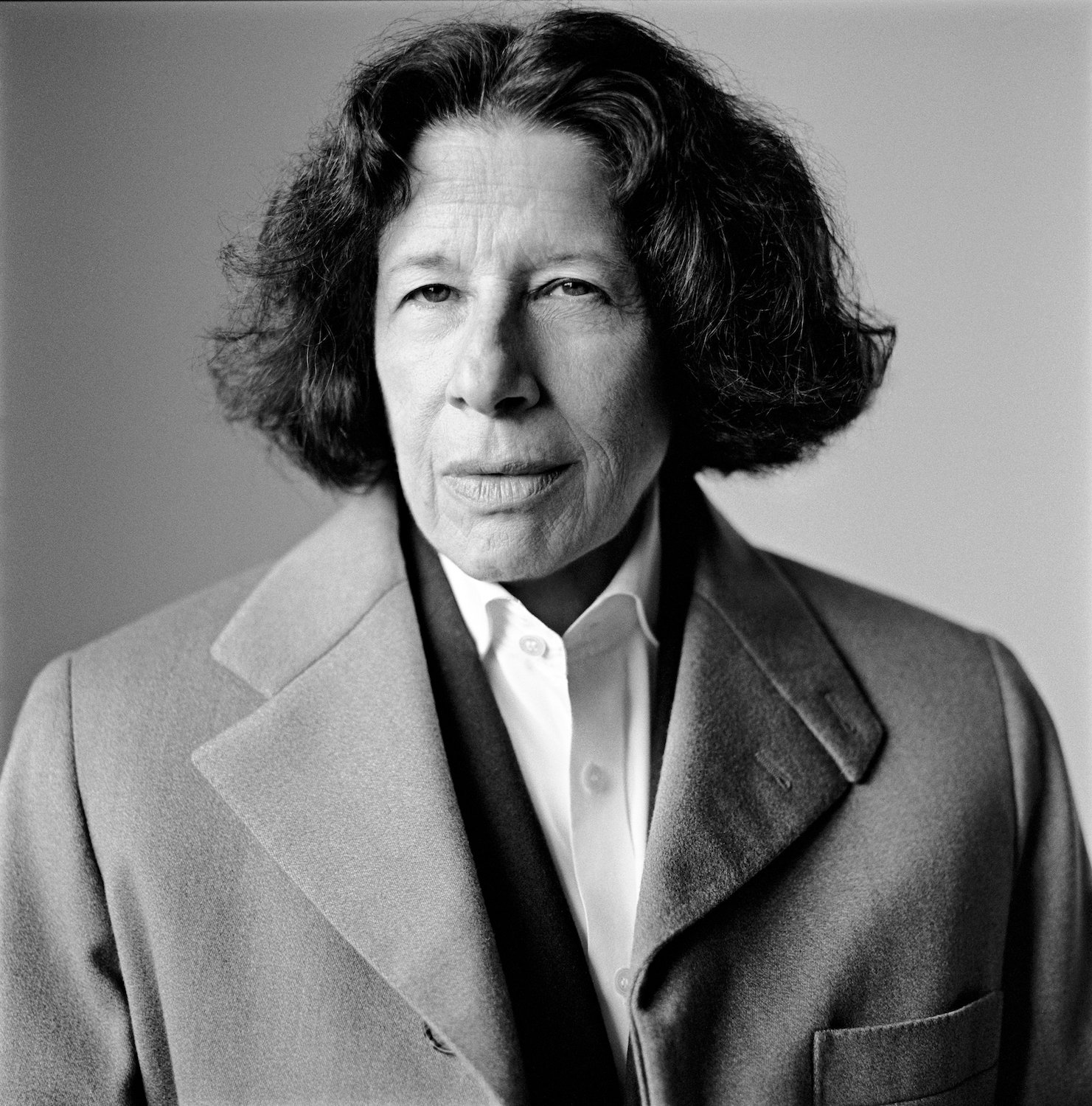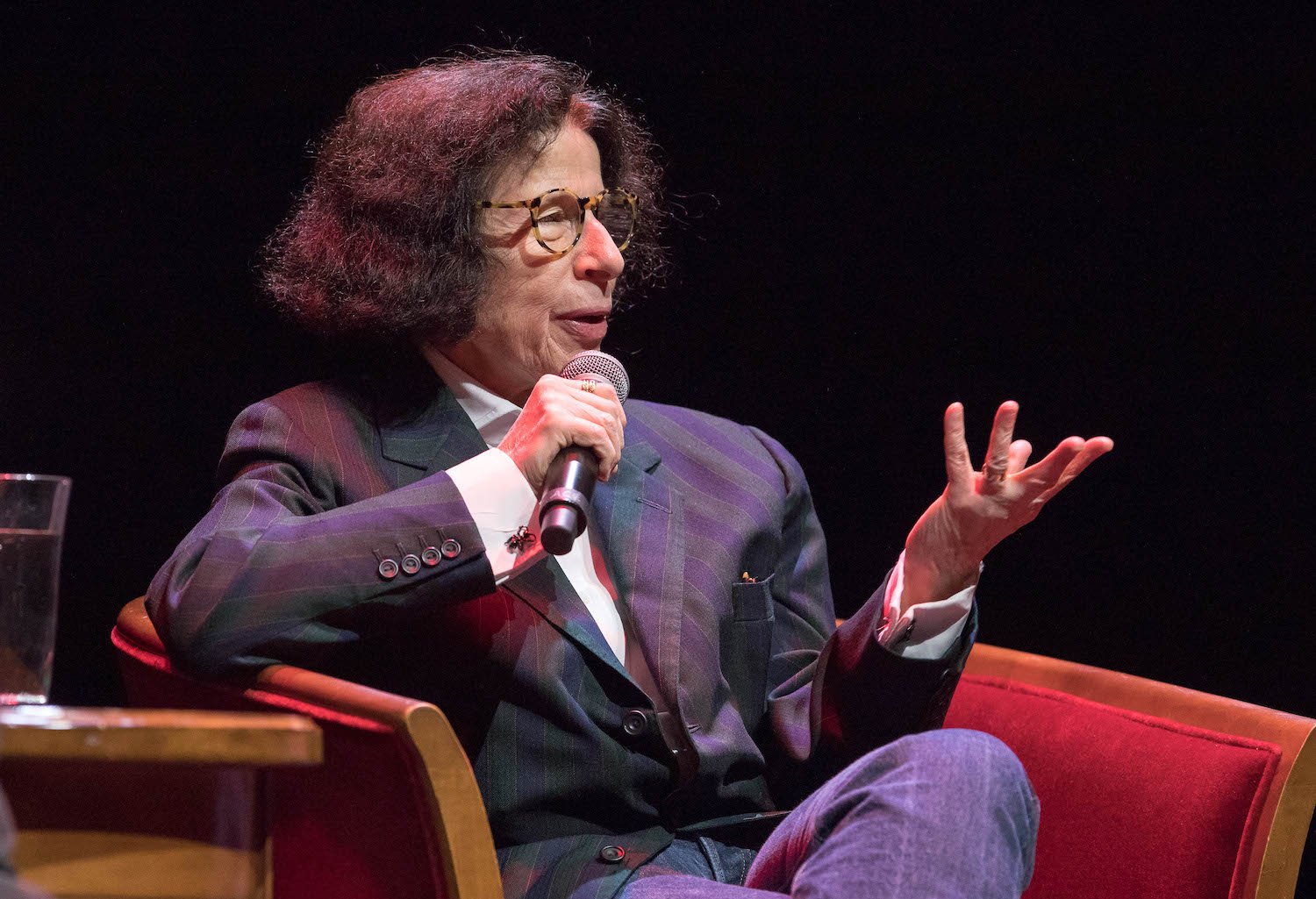Let’s get something out of the way: promotional interviews are, by and large, a questionable idea. They rely on the assumption that one person cares enough to answer questions in an intelligent manner and the other is smart enough to ask them. Often, neither is true. But this is Fran Lebowitz. An articulate curmudgeon and the patron saint of sarcasm. She’s fun to talk to. Besides, Lebowitz is speaking as part of UC San Diego’s ArtPower series on January 23, and San Diego Magazine was offered a 20-minute call with the 74-year-old social commentator, so we went for it.
Known for her style, wit, and inability to suffer fools, Lebowitz has spent decades holding a mirror up to society, while rolling her eyes at what she sees. The subject of more than one fawning Martin Scorsese project, Lebowitz is often referred to as a writer even though she’s spent the bulk of her career not writing, which, in her words, is the best part of being a writer. She’s also an unrepentant critic—not just of art and culture, but of humanity at large, as well as a chain smoking, coffee-drinking, die-hard New Yorker.
So, whether she’s talking bagels, romance, gay marriage, or the formality of flip-flops, she does so with humor and insight that makes her fans laugh, wince, and think—often all at once. In our promotional interview, she waxes about all these things, and more.
Mateo Hoke (MH): How are you?
Fran Lebowitz (FL): Horrible. Like every other sane American.
MH: This is off to a great start. You’re coming to San Diego, there will be people wearing flip-flops at your event. Are you prepared for that?
FL: I have bad news for you, you see that everywhere. Not everywhere in the world, by the way, but everywhere in the United States. Even in places where you would think, gee, it’s like 20 degrees, don’t you think it’s too chilly for that?
You see it in airports, you see it on planes, everywhere. I find it astonishing. Not only because I’m old, and not only because it seems to be very inappropriate weather-wise, but it seems to me to be so shockingly casual. I see people in public—and not just in San Diego—who are dressed in a way I don’t dress when I’m alone in my apartment.
How formal you are is partially generational, but it’s not wholly. And apparently, as far as clothes go in regard to things like flip flops, there is a general idea—not shared by me—that everyone has to be incredibly comfortable all the time.

MH: Ok wait, what are you wearing right now as a fashion icon lounging around at home?
FL: First of all, I never called myself a fashion icon, other people did. And I’ll tell you, I happen to be an incredibly careful person with clothes. My parents were raised during the depression and this wore off on me.
So, right now I’m wearing jeans—which I always wear—but these jeans I would not wear out of the house because these jeans are so ripped up that only maybe a 20-year-old model would love to have them. But these are actually ripped up by wear as opposed to ripped up by some store. And I’m wearing a Brooks Brothers shirt that is at least 30 years old—also ripped—and moccasins that are not that old only because when I found them 100 years ago, I liked them so much I bought more than one pair. So that’s what I’m wearing, but I wouldn’t leave my apartment in this.
MH: That’s all still very stylish.
FL: I mean, I’m 74, maybe if that had been the style when I was young. By the way, most of these things that kids wear now, they have been worn numerous times. I don’t mean the actual garments, I mean fashion is a limited form.
MH: It’s cyclical, every 20 years it comes back.
FL: Yeah, although everyone calls it an art, it’s really not, because it’s useful. You know, you wear it, you use it, and there’s a limited number of options that designers have. So I’ve seen, like, a million things come back a million times.
MH: All right, can I talk to you about New York now that I’ve talked to you about San Diego a little bit?
FL: Sure.
MH: What’s your bagel order? Toasted? Untoasted?
FL: I don’t do that. I don’t go out for breakfast. I buy bagels, I eat them here. If I have fresh bagels I do not toast them. In my opinion, you toast bagels ’cause they’re not good enough to eat untoasted.
MH: Gotcha. I’m a big bagel guy and I will tell you, New York has done a tremendous job of marketing their bagels. In fact, I went to a bagel shop that claimed to treat their water to get the exact pH of NYC in order for their bagels to taste like NYC bagels. This isn’t a question so much as I just want you to hold my hand and tell me I’m not out of line for thinking this is asinine and gimmicky.
FL: You know, I really love to eat. I’m as gluttonous as the next person, but I don’t cook, and I don’t care how something is made.
One of the things I hate in restaurants is when they tell you everything that’s in a dish. I think, I don’t care. I don’t care, I’m not gonna make it.
The main thing about bagels—if that’s your main interest—is they should be bagels and not donuts. They shouldn’t be soft, they shouldn’t be big. And there’s no such thing as the best bagel in the world. There’s a big thing here—apparently Toronto believes themselves to be the city of the best bagel.
MH: Oh, Controversy.
FL: Yeah, I’ve heard a lot of controversy but I’ve never entered these discussions because I don’t know, and I don’t care.
MH: Ok, so relating to New York thinking it’s home to the best this or that. Is New York the center of the universe?
FL: Yes.
MH: Wait, I’m not done with the question, it’s three parts. Is New York the center of the universe? Why is your answer going to be yes, and why does everyone in New York think that?
FL: [Laughing] Well my answer is yes. And my answer is yes because it’s true. And everyone in New York thinks that because it’s true. Additionally, if you live in New York, it’s so hard to live here that you have to believe it’s worth it. There is nothing about life in New York that is not at the least a hassle. It’s also psychotically expensive and you have to believe that this is worth it. To me it is worth it. Obviously, to certain people it is not, but you know, to me, whatever people say, ‘Oh, New York’s not like it used to be’—which people say every two seconds—that is true. But nothing is, because time doesn’t go in the direction backwards.
MH: Fair. Speaking of time, you’re 74 years old, what’s the biggest shift in human consciousness you’ve seen unfold in your lifetime?
FL: For me, the change in attitude toward gay people is gigantic. It’s something I never imagined would happen. Ever. I never fought for gay marriage, I was never an activist. First of all, we never heard of gay marriage, let me assure you, this wasn’t even a concept when I was young. And I certainly wouldn’t have fought for it.
I have to say the first two things that were actually accomplished by the gay rights movement was gays in the military—which no one remembers—and gay marriage. And those are the two things that when I was young—when it was very hard to be gay, in fact it was a crime when I was young—they were the two most confining institutions in the culture. [Growing exasperated] The two advantages of being gay was you didn’t have to get married and you didn’t have to go in the army! I mean, to me, this seems like fighting for slavery. So, I did not fight for these things.
But I never imagined it would happen. Being gay when I was young wasn’t that different from being gay for Oscar Wilde. It was a crime. It really changed cities, too, because one of the reasons people lived in cities like New York or San Francisco was because they were gay. You couldn’t live the life you wanted anywhere else.
MH: What about other major shifts?
FL: The Me Too movement. That seemed to happen in a second. Of course, it didn’t, but it felt like it. Being a woman was kind of the same from Eve until that happened. It’s not perfect now, but it’s different.
MH: Do you have any big failures in life? Have they taught you anything notable?
FL: Sure. I mean, I have many, as all people do. I don’t have one thing like, “I almost won the gold medal at the Olympics” or something. People who have a biggest failure probably have a level of success I don’t have. Everyone has many more failures than successes.
MH: People sometimes consider failure in love, relationships, work, and all sorts of things.
FL: I happen not to be a person who believes in success in love in that way. By that, I mean finding the one person that’s perfect for you and spending your whole life with them. That didn’t happen to me, and it really doesn’t happen to most people. I find it odd that adults believe in that. To me, intrinsic in the word romance, is that it ends. Lifelong romance? I just don’t believe it.
MH: A lot of people are coming to see you here in San Diego soon and I’m curious, what do you want them to take away from their time with you?
FL: You know, I’ve never thought about this. I want them to enjoy themselves. Because what I always know is people do not go to a theater unless they are hoping to enjoy themselves. So, I’m hoping that they enjoy themselves. I personally love doing this, so I hope that they enjoy it even half as much as I do.
MH: Fair. But wait, speaking of coming and waiting in line to see you. As a New Yorker, when you’re queued up for something like a movie or a grocery store do you say you’re in line or that you’re on line?
FL: On line.
MH: Ok now let me ask you this, when you get out of that line do you say you got off line or that you got out of line?
FL: First of all, I will not stand in line or on line for anything other than having to like, check out of the grocery store or TSA or something you have to do.
MH: My question is more about semantics. Why do New Yorkers say they’re on line when they’re in a line?
FL: Oh, I have no idea. That I could not possibly tell you.
MH: Last question, talk to me about chocolate.
FL: I have no objections to it. It’s one of the best smells for sure. If you go into a chocolate shop, it smells delicious. Not the best smell, though. The best is coffee.
MH: What’s your coffee order?
FL: Oh, I don’t often order coffee. I make it. I hate to cook, but I happen to be the Albert Einstein of coffee. I buy beans—nothing fancy—grind them myself, and use an old-fashioned porcelain Melitta. It takes 30 minutes to make a small pot, but it’s unbelievably good. People can’t believe how delicious it is when I make it for them.
MH: So if one were to get invited to Fran Lebowitz’s house, the move is to ask for coffee?
FL: Yes. Occasionally, I’ve even offered it to workmen in the house fixing something because they can’t pretend it’s not there. It smells so perfect. They always say yes and tell me “this is fantastic!” No other coffee is as good as mine. Even bad coffee is better than no coffee. Coffee is so good, I can’t even believe it’s legal.
MH: A truly wonderful narcotic.
FL: Yes, and I just read a horrible article recently about how we’re not necessarily running out of coffee, but kind of. Because apparently the places where they grow coffee are experiencing climate change to where they can’t grow enough beans, so it’s going to end up costing like $1000 a pound—at which point it will still be worth it.
MH: The world keeps getting worse in so many ways.
PARTNER CONTENT
FL: Yes, well, let me assure you, this is improvable. You know, anything that’s created by human beings is fixable by human beings.
Fran Lebowitz is appearing at the Balboa Theatre (868 Fourth Avenue) on January 23 as part of UCSD’s ArtPower Series. More info here.
























